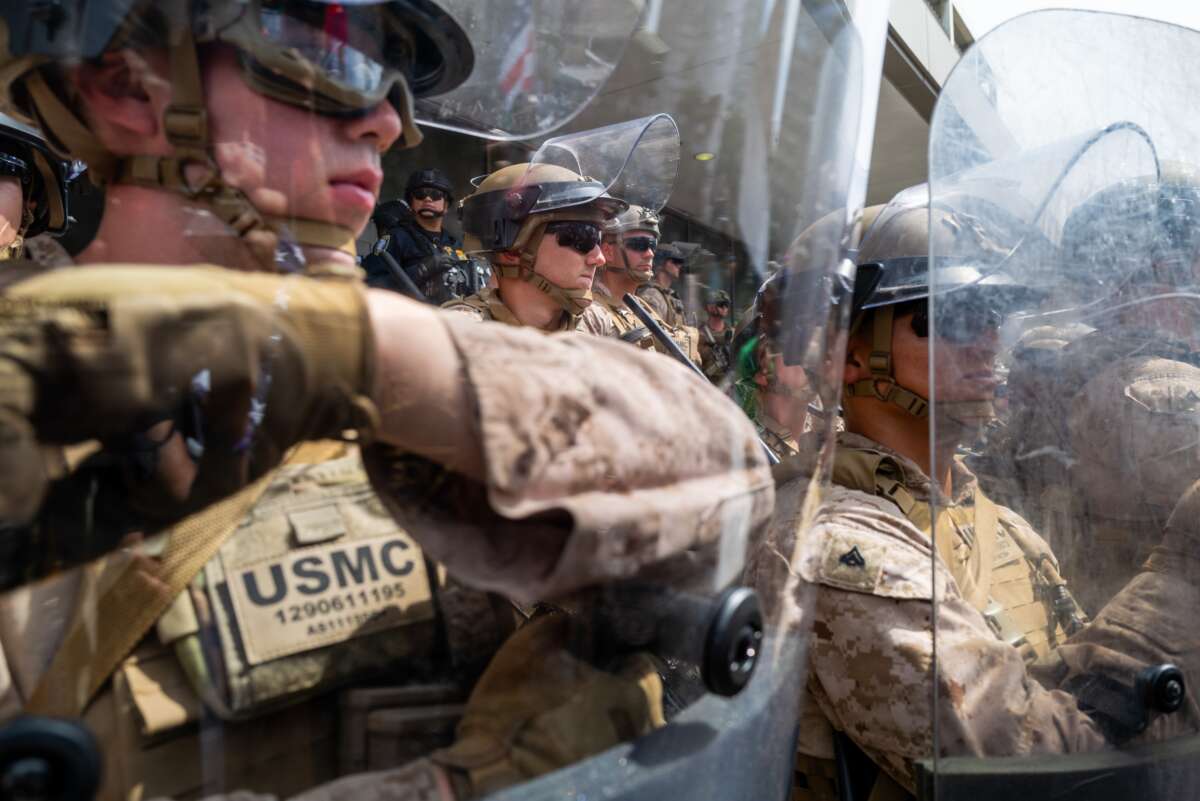President Donald Trump has sparked significant controversy by suggesting he could deploy military forces to American cities to address crime. Speaking to troops stationed in Japan on October 20, 2025, Trump stated, “We have cities that are troubled. We can’t have cities that are troubled,” implying that he could send in more than just the National Guard if necessary.
This declaration follows Trump’s recent deployment of the National Guard to various cities, including Los Angeles, Chicago, Memphis, and Portland. In most cases, local and state officials have opposed these actions, often filing legal challenges against the federal government’s involvement. Notably, a federal appeals court recently decided to rehear a case concerning the National Guard’s deployment to Portland, signaling a potential legal dispute over the president’s authority to federalize state troops.
When pressed by a reporter from the New York Times regarding his comments about deploying “more than the National Guard,” Trump indicated that he feels empowered to send any branch of the military into American cities without judicial or congressional oversight. “If I want to enact a certain act, I’m allowed to do it,” he asserted. “The courts wouldn’t get involved. Nobody would get involved. And I could send the Army, Navy, Air Force, Marines — I could send anybody I wanted.”
The president’s remarks have raised alarms among critics who argue that such actions would violate constitutional norms. Earlier this month, Trump threatened to invoke the Insurrection Act, claiming it grants him “unquestioned power.” This law does allow for the deployment of federal troops to restore order during extreme emergencies, such as violent rebellions. However, local leaders in affected cities have categorically stated that ongoing protests do not meet the criteria for invoking this law.
A coalition of advocacy groups, including Lisa Gilbert of Public Citizen and Praveen Fernandes of the Constitutional Accountability Center, condemned Trump’s comments, labeling them “unlawful and un-American.” They emphasized that the military’s role is to defend the nation, not to act against its citizens. In their view, Trump’s assertion that he could operate with impunity poses a grave threat to democratic norms and civil liberties.
Retired Major General Randy Manner, a former top official at the National Guard, echoed these sentiments, describing the use of military forces for domestic law enforcement as “un-American and wrong.” He highlighted that the National Guard is primarily intended to assist in overseas military operations or respond to state emergencies, not to conduct routine policing. “Our military is not trained in law enforcement,” Manner stated. “There are absolutely zero situations where our National Guard should be on the streets of America as a status quo measure.”
Trump’s discussions around military deployment in domestic contexts are not new. During the 2024 election campaign, he suggested using military forces to confront what he termed “the enemy from within.” His rhetoric has escalated in recent months, with statements proposing to use urban areas as “training grounds” for military operations.
These developments underscore a growing tension regarding the militarization of domestic law enforcement and the balance of power between federal and local authorities. As these discussions continue, the implications for civil rights and the role of the military in American society remain a focal point of national debate.
